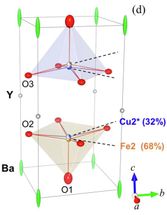Common painkillers lower levels of prostate cancer biomarker
But impact on a man's risk for getting prostate cancer is unclear, physicians say
Common painkillers like aspirin and ibuprofen appear to lower a man's PSA level, the blood biomarker widely used by physicians to help gauge whether a man is at risk of prostate cancer. But the authors of the study, which appears in the journal Cancer, caution that men shouldn't take the painkillers in an effort to prevent prostate cancer just yet.
"We showed that men who regularly took certain medications like aspirin and other non-steroidal anti-inflammatory drugs, or NSAIDS, had a lower serum PSA level," said first author Eric A. Singer, M.D., M.A., a urology resident at the University of Rochester Medical Center. "But there's not enough data to say that men who took the medications were less likely to get prostate cancer. This was a limited study, and we do not know how many of those men actually got prostate cancer."
Singer's team studied the records of 1319 men over the age of 40 who took part in the 2001-2002 National Health and Nutrition Examination Survey (NHANES), a health census conducted by the Centers for Disease Control and Prevention. The team looked at the men's use of NSAIDs such as aspirin and ibuprofen, as well as the painkiller acetaminophen, and at their PSA levels. A man's level of PSA, or prostate-specific antigen, is one of many clues that physicians watch to gauge a man's risk of getting prostate cancer.
The team found that men who used NSAIDs regularly had PSA levels about 10 percent lower compared to men who did not. The team made a similar observation with acetaminophen, but the result was not statistically significant due to the lower number of men in the study taking the medication. While it might be easy to assume that a lowered PSA level automatically translates to a lowered risk of prostate cancer, the authors stress that it's too soon to draw that conclusion.
"While our results are consistent with other research that indicates that certain painkillers may reduce a man's risk of getting prostate cancer, the new findings are preliminary and don't prove a link," said corresponding author Edwin van Wijngaarden, Ph.D., assistant professor in the Department of Community and Preventive Medicine.
Singer said that a man's PSA level can be elevated for reasons unrelated to cancer. Sometimes, for instance, while inflammation is part of a cancer process, sometimes it is not, and so it's possible that a lowered PSA reflects reduced inflammation without affecting a man's risk of prostate cancer. Another possibility is that a PSA level lowered by NSAIDs might artificially mask a man's risk of getting prostate cancer: The medications might lower the PSA, but a man's risk might stay precisely the same.
"More than anything, these findings underscore the importance for doctors to know what medications their patients are on," said Singer, who is chief Urology resident at the University of Rochester Medical Center. "For instance, there are medications commonly used to treat an enlarged prostate that can result in a decreased PSA, and most physicians know that. Doctors should also be asking about patients' use of NSAIDs such as aspirin and ibuprofen."
Most read news
Topics
Organizations
Other news from the department science

Get the analytics and lab tech industry in your inbox
By submitting this form you agree that LUMITOS AG will send you the newsletter(s) selected above by email. Your data will not be passed on to third parties. Your data will be stored and processed in accordance with our data protection regulations. LUMITOS may contact you by email for the purpose of advertising or market and opinion surveys. You can revoke your consent at any time without giving reasons to LUMITOS AG, Ernst-Augustin-Str. 2, 12489 Berlin, Germany or by e-mail at revoke@lumitos.com with effect for the future. In addition, each email contains a link to unsubscribe from the corresponding newsletter.





















































